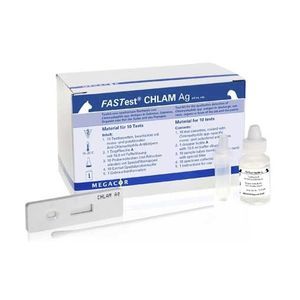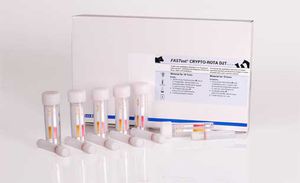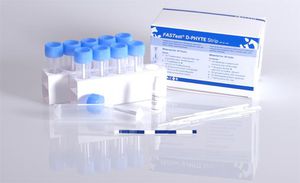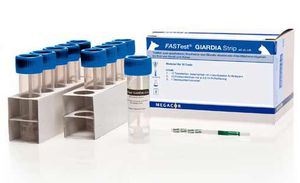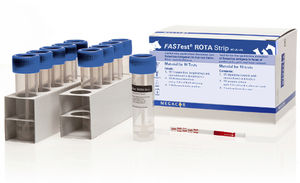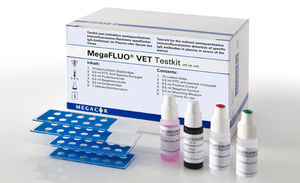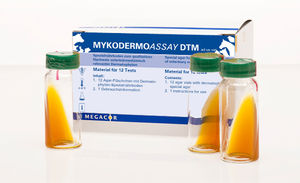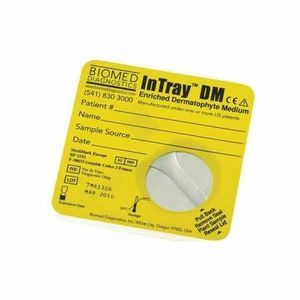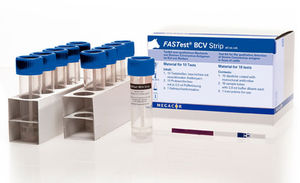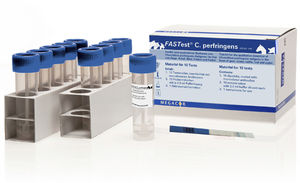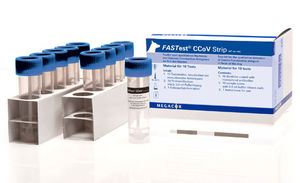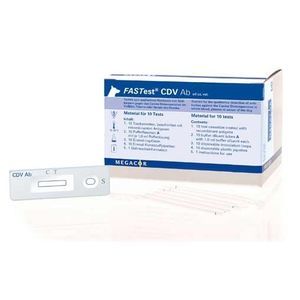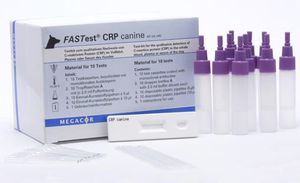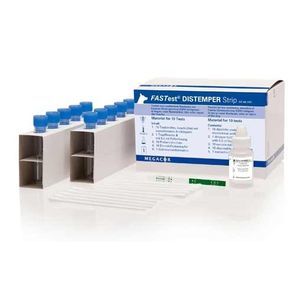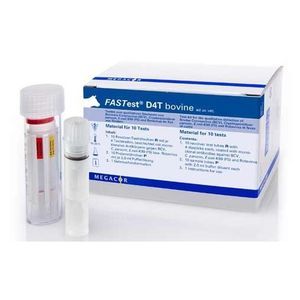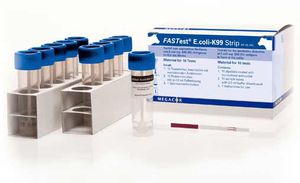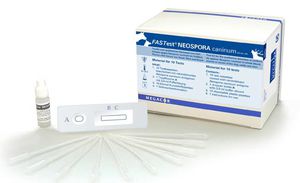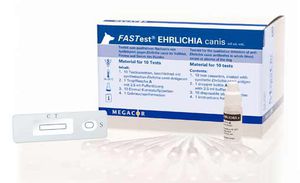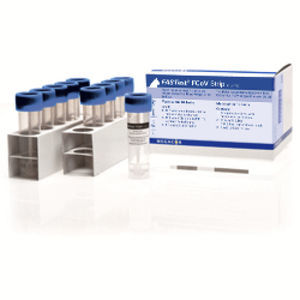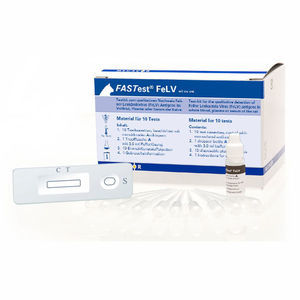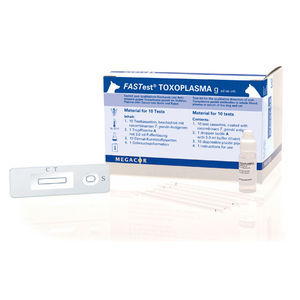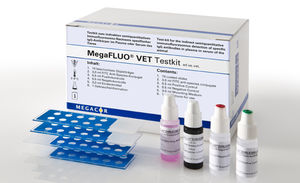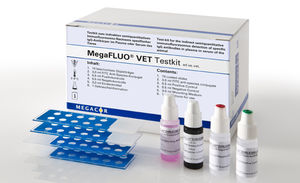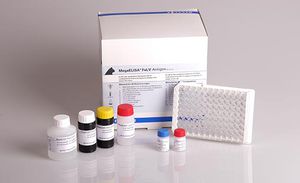
- Laboratory
- Laboratory medicine
- Rapid infectious disease test
- MEGACOR Diagnostik
Rapid infectious disease test FASTest® ANAPLASMAfor caninesfor equinesfor antibodies
Add to favorites
Compare this product
Characteristics
- Applications
- for infectious diseases
- Patient type
- for canines, for equines
- Tested parameter
- for antibodies
- Micro-organism
- Borrelia burgdorferi, Anaplasma phagocytophilum, Anaplasma platys
- Sample type
- serum, plasma, whole blood, clinical
- Analysis mode
- immunochromatographic
- Result display time
15 min
- Specificity
96.4 %
- Sensitivity
99 %
Description
FASTest® ANAPLASMA is a rapid immunochromatographic test for the qualitative detection of antibodies against Anaplasma phagocytophilum and Anaplasma platys in whole blood, plasma or serum of dog and horse.
Anaplasmosis is a bacterial-borne infectious disease that can cause various clinical symptoms depending on vector or pathogen species. The agent Anaplasma phagocytophilum mainly occurs in the northern hemisphere causing granulocytotropic anaplasmosis. It plays an important epidemiologic role in dogs and horses. Other mammals as well as humans (zoonosis) can be also infected by a tick bite.
In principle, tick territories (endemic area) are potential breeding grounds for dog and horse. In Europe, approximately 2–4,5% of the ticks (especially Ixodes spp.; Dermacentor spp.) are infected with A. phagocytophilum. In endemic tick territories, asymptomatic horses show seroprevalences from 26 to 33%. In the horse, morbidity ranges from 66 to 100%. In the dog, morbidity for single infection with A. phagocytophilum is low, but coinfection (e.g. Borrelia burgdorferi, E. canis) will increase the clinical course. Recent studies in Germany indicate a seroprevalence from 19 to 50%.
With a transmission time of usually up to 25 hours after tick bite and an incubation time of 2 to 20 days, infections typically are subclinical or self-limiting. Antibody titres will increase 2–3 weeks post infection, remain for some months and decrease to normal levels after 7 months.
Catalogs
No catalogs are available for this product.
See all of MEGACOR Diagnostik‘s catalogsRelated Searches
- Assay kit
- Blood assay kit
- Molecular biology reagent kit
- Serum assay kit
- Immunoassay assay kit
- Plasma assay kit
- Infectious disease detection kit
- Blood rapid diagnostic test
- Diagnostic reagent kit
- Rapid lateral flow test
- Laboratory reagent kit
- Immunoassay rapid diagnostic test
- Rapid virus test
- Serum rapid diagnostic test
- Plasma rapid diagnostic test
- Histology reagent kit
- Reagent medium reagent kit
- Infectious disease rapid diagnostic test
- Immunology reagent
- Whole blood rapid diagnostic test
*Prices are pre-tax. They exclude delivery charges and customs duties and do not include additional charges for installation or activation options. Prices are indicative only and may vary by country, with changes to the cost of raw materials and exchange rates.



